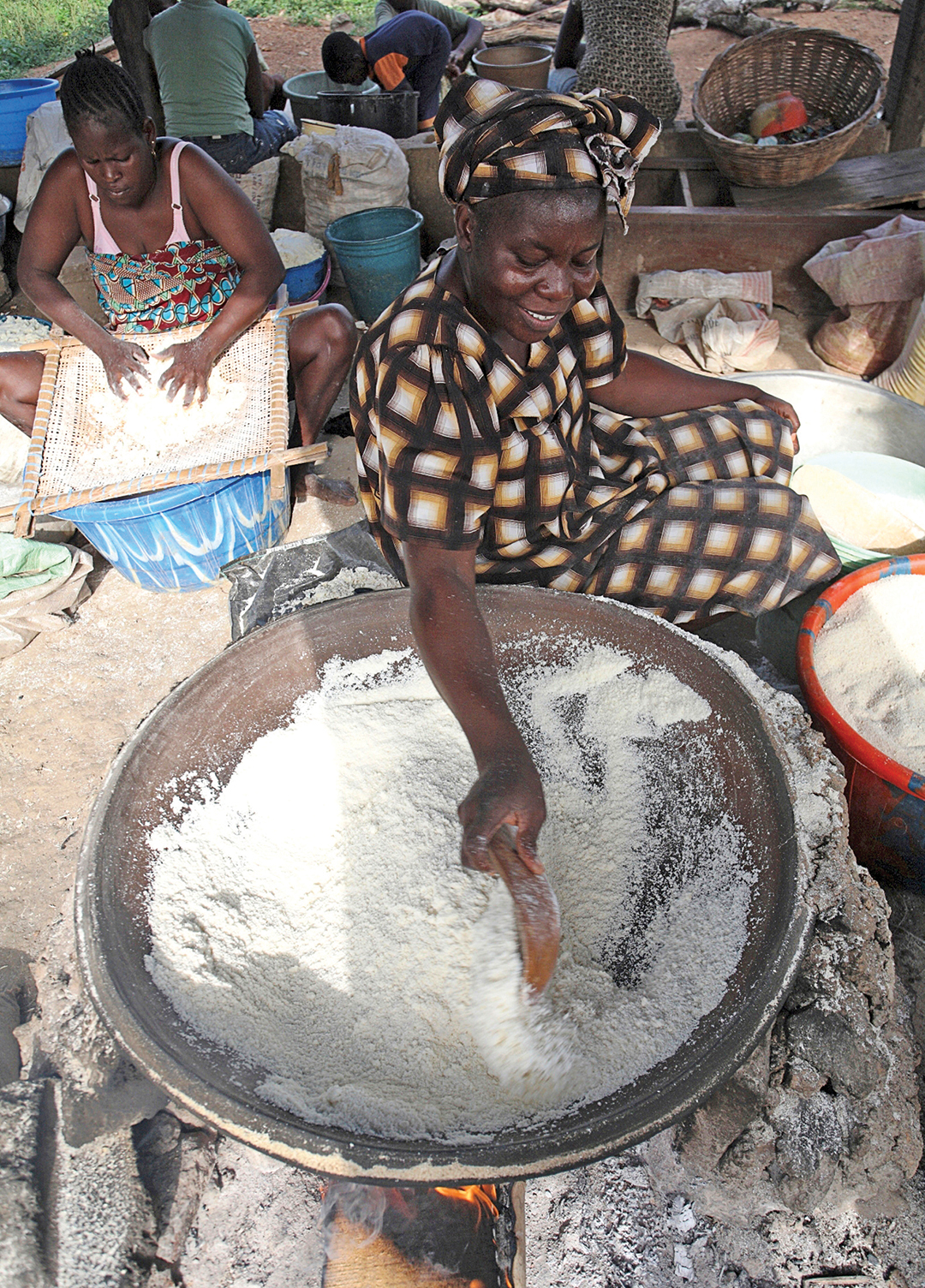THOMSON REUTERS FOUNDATION
To deal with drier conditions, Zambian farmer Pamela Nyirenda in 2019 shifted to growing drought-hardy cassava, among other new water-sipping crops such as groundnuts and cowpeas.
But in 2020 her cassava field has brought not just a secure harvest but also a financial windfall, as buyers snap up the tubers to produce ethanol for alcohol-based hand sanitizer.
As the COVID-19 pandemic hits Africa, cassava flour in Zambia is selling for up to 5,000 kwacha ($270) a metric ton, a steep increase above the same time in 2019, according to the Zambia National Farmers Union.
“This is my second year cultivating [it], and I have managed 10 [metric] tons of cassava tubers,” she said. She expects to earn nearly twice as much from her cassava in 2020 as she did in 2019.
Musika, a Zambian agricultural nonprofit, noted that more than 25,000 farmers in Zambia — many of them women — are now growing drought-tolerant varieties of cassava, up from 5,000 five years ago.
Pamela Hamasaka, head of corporate affairs for Musika, said demand for cassava ethanol has surged in Zambia as companies rush to churn out more hand sanitizer to control the spread of the deadly COVID-19 pandemic.
In May 2020, 250 metric tons of cassava flour a day were being turned into ethanol for hand sanitizer and other products sold locally or exported to neighboring countries, she said.
But some experts fear turning food crops like cassava into ethanol could damage the region’s food security as a COVID-19 global economic slowdown leads to more export bans.
Zambia’s Ministry of Agriculture projects the country will produce just over a million metric tons of cassava flour in 2020.


Comments are closed.